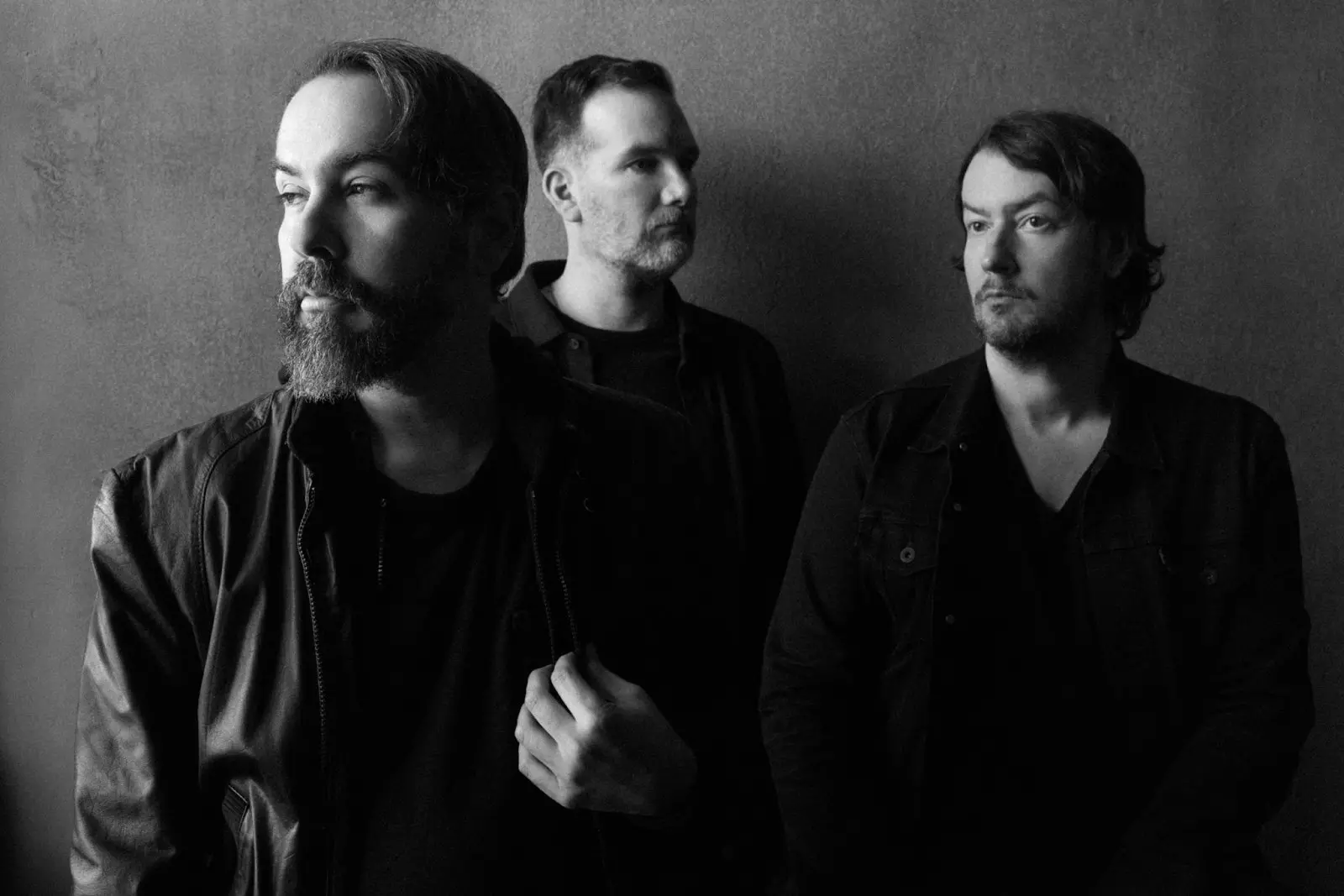Photo: Michaela Austin
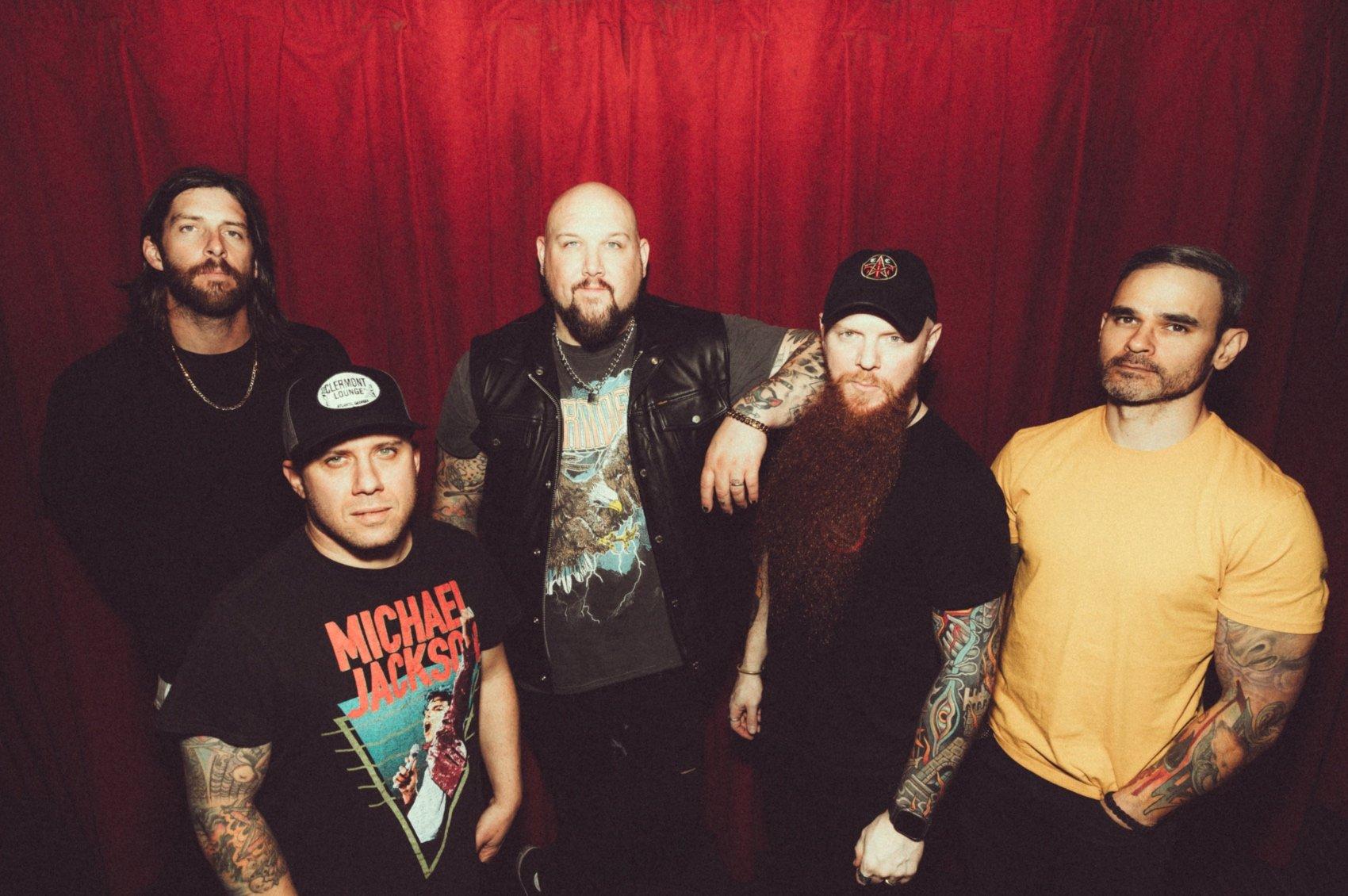
interview
With 'The Beautiful Dark Of Life,' Atreyu Bind Their Three EPs: "We've Always Been A Band That's Kept People Guessing"
In an effort to "give all the songs more of their day in the sun," long-running metalcore group Atreyu opted to release their new album, 'The Beautiful Dark of Life,' piecemeal. The final work catches evermore shades of the human condition.
Atreyu named themselves after a character from The Neverending Story — within its pages, he's the protagonist of the cryptic book that Bastian reads and is subsumed by. Atreyu themselves seem neverending.
For the past 30 years, the Californians have been one of metalcore's sturdiest workhorses. And that durability requires flexibility, mutability — especially when it comes to the shifting tides of the music industry.
That's why the rockers opted to release their new album, The Beautiful Dark of Life, initially as three EPs: 2023's The Hope of a Spark, The Moment You Find Your Flame and A Touch in the Dark. With three new songs — "Dancing With My Demons," "Insomnia" and the title track — The Beautiful Dark was complete.
"We wanted each EP to have its own space to exist, for every song to find its audience and connect with people in its own right," Atreyu bassist and vocalist Porter McKnight explained in the press release.
"But then when those songs are later collected together in the shape of an album, it will be an 'A-ha!' moment," McKnight added, "where we hope people will rediscover them in a new light, and find something in them all over again."
And as frontman Brandon Saller explains to GRAMMY.com, the album title came from his daughter, commenting on the nature of shadows. "The Beautiful Dark Of Life is the journey we are all on," he added in the same press release. "It is the journey we have taken the audience on through the three EPs: the highs, lows, and lessons of life.
"And much like living through them, you don't gain a full understanding of what it all means without the whole picture," he concluded. "This album is that picture."
Read on for an interview with Saller about the strategy behind The Beautiful Dark of Life, why the band is more open and vulnerable than ever, and the importance of unpredictability.
This interview has been edited for clarity.
Can you talk about the decision to first release the album in the form of three EPs ? What meaning did the music take on via trisection?
The initial decision was made sort of from a consumption angle. You pour your soul into an album — and the reality is, about half of it sort of gets forgotten because most people can't focus that long into an album.
We wanted to try something that might sort of give all the songs more of their day In the sun. Once the concept sort of showed its head, it made sense to have the listener go through the sort of seasons of life in real time with us on each release.
Because in reality, we don't usually just live these lows and highs once do we? It's an ever-growing journey that we live through. The cycle is represented over and over in the EPs.
**You explore themes from anxiety and depression to personal identity at length in The Beautiful Dark of Life. Can you talk about how these themes popped up in past Atreyu music, and how they seem to come to fruition on this album?**
Internally, our band is more open with each other than ever before. We're there for each other. I think the concept of discussing depression or any personal matter became a much more comfortable space within the band.
The product of that is something incredibly genuine to each of us, as we all sort of used this as our own way of dealing with ourselves.
**It just feels almost youthful. A lot of the energy within our band feels like we're teenagers again. We're having so much fun but have so much to prove [laughs].**
In the press release, Atreyu cites a need to reach out to your audience and offer "solace, empathy, escapism and empowerment." To you, what capacity does music have to really help, as countless global crises swirl around us?
I think music can be a complete escape. And in addition, I think it can be a catalyst for good. Art, in general, can and should be those things.
I think we just want our fans to fully understand that they can come to a show or immerse themselves in Atreyu in any way and know that it's a place for them to fully let loose and unload whatever they may be going through. That's what it is for us as well.
**What was the first song written and recorded for The Beautiful Dark of Life, and what was the last?**
I believe the first song was "Dancing With My Demons" and the last was perhaps [the title track].
Which song has the most personal significance to you? Which moments — songs aside — are you most proud of?
"(i)" is incredibly personal for me. Perhaps the most honest I've been on a song. I also have a strong attachment to "The Beautiful Dark of Life" because my daughter came up with the concept.
What is The Beautiful Dark of Life a bridge to, as far as Atreyu is concerned? What can you do now, now that you've made this?
The funny thing is I doubt anyone will be able to peg our next move [laughs]. I feel like we've always been a band that's kept people guessing — and we like that.
Shinedown Open Up About Upcoming Album Planet Zero, 20 Years Of Road Warriordom & Why Rock Is A Tonic Against Global Toxicity
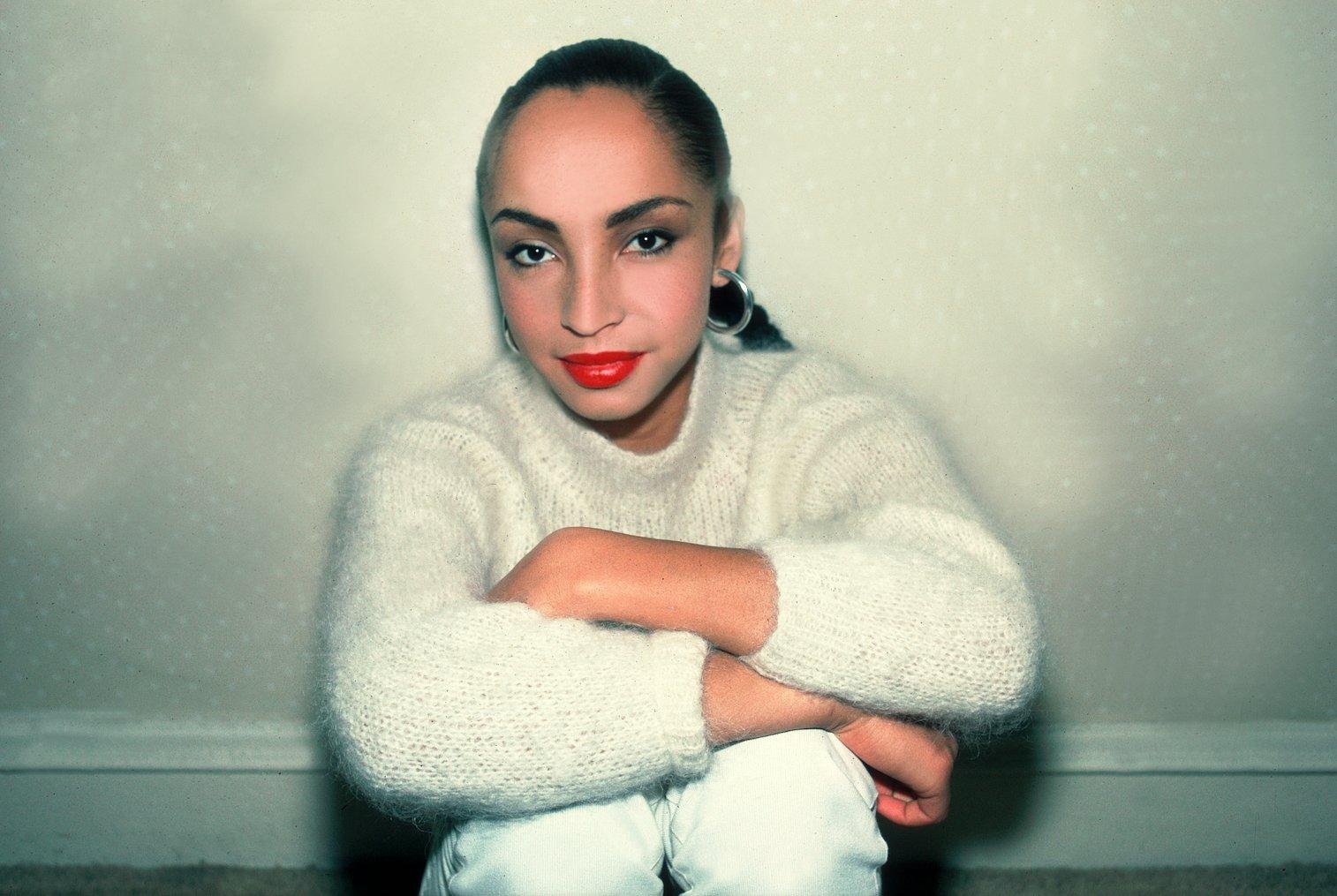
Photo: Paul Natkin/Getty Images
list
8 Ways Sade's 'Diamond Life' Album Redefined '80s Music & Influenced Culture
As Sade's masterpiece 'Diamond Life' turns 40, see how the group's debut pushed R&B forward and introduced them as beloved elusive stars.
"I only make records when I feel I have something to say," Sade Adu asserted in 2010 upon the highly anticipated release of Sade's GRAMMY-winning Soldier of Love album, which arrived after a 10-year hiatus. "I'm not interested in releasing music just for the sake of selling something. Sade is not a brand."
This lifetime of dedication toward achieving musical excellence helped Sade — vocalist Adu, bassist Paul S. Denman, keyboardist Andrew Hale, and guitarist/saxophonist Stuart Matthewman — gain prominence in the mid-80s, also garnering enormous respect from fans, critics, and peers alike. Formed in 1982, the English band is one of the few acts that can still be met with a hungry audience after disappearing from the spotlight for multiple years.
In an industry where churning out a new body of work is expected every couple of years, the four meticulous members of Sade move on their own time, putting out a mere six studio albums since 1984. Every project becomes more exquisite than the last, but it all began 40 years ago with Sade's illustrious debut album, Diamond Life. Ubiquitous hits like "Smooth Operator" and "Your Love Is King" appealed to listeners young and old — offering a unique blend of R&B, jazz, soul, funk, and pop that birthed a new sound and forced the industry to take notes from the jump.
As Sade's Diamond Life celebrates a milestone anniversary, here's a look at how the album helped push R&B forward, and why it's just as relevant today.
It Helped Set Off The "Quiet Storm" Craze
By mid-1984, Michael Jackson, was riding high off of winning the most GRAMMYs in a single night (including Album Of The Year) for his blockbuster album Thriller, Madonna celebrated her first top 10 hit with "Borderline," and Prince's Purple Rain was just days away from its theatrical release. Duran Duran, Culture Club, Billy Idol, and the Police were mainstays, while "blue-eyed soul" in particular had also hit an all-time high thanks to Hall and Oates, Wham, Simply Red, and others. What's more, many Black artists like Lionel Richie and Whitney Houston opted for more of a pop sound to appeal to broader audiences during MTV's golden era.
Diamond Life was refreshing at the time, as it fully embraced soul and R&B. The album offered a chic sophistication amid the synth-heavy pop and rock music that ruled the charts.
Singles like "Your Love Is King" and "Smooth Operator" introduced jazz elements into mainstream radio. In turn, Sade helped usher in the "quiet storm" genre — R&B music at its core, with strong undertones of jazz for an ultra-smooth sound. Sade and Diamond Life also laid some of the groundwork for neo-soul, which saw a surge in the '90s à la Lauryn Hill, Maxwell, and Erykah Badu.
It Made GRAMMY History
In the 65-year history of the GRAMMYs, a small number of Nigerian artists, including Burna Boy and Tems, have won a golden gramophone. In 1986, a then 27-year-old Sade Adu made history as the first-ever Nigerian-born artist to win a GRAMMY when she and her band was crowned Best New Artist at the 29th GRAMMYs. Still, Billy Crystal and Whoopi Goldberg had to accept the award on Sade's behalf — signaling Adu's elusive nature as she rarely attends industry events or grants interviews.
Since then, Sade has gone on to earn three more GRAMMYs, including Best Pop Vocal Album in 2001 for their fifth studio album, Lovers Rock. The win signified their staying power in the new millennium.
It Birthed The Band's Signature Song…
While Diamond Life spawned timeless hits like "Your Love Is King" and "Hang On to Your Love," "Smooth Operator" became the album's highest-charting single — and remains the most iconic song in their catalog. The seductive track about a cunning two-timer propelled the band into international stardom: "Smooth Operator" skyrocketed to No. 5 on the Billboard Hot 100 and hit No. 1 on the Adult Contemporary chart.
Even non-Sade fans can identify "Smooth Operator" in an instant, from Adu's unmistakable vocals to that now-iconic instrumental saxophone solo. As of press time, it boasts over 400 million Spotify streams alone, and has remained a set list staple across every one of Sade's tours.
…And It Houses Underrated Gems
"Smooth Operator" may be Sade's commercial classic, but deep cuts like "Frankie's First Affair," "Cherry Pie," and "I Will Be Your Friend" are fan favorites that embody the band's heart and soul.
"Frankie's First Affair" offers a surprisingly enchanting take on infidelity: "Frankie, didn't I tell you, you've got the world in the palm of your hand/ Frankie, didn't I tell you they're running at your command." And, it's impossible to resist the funky groove that carries standout track "Cherry Pie," which served as a catalyst for some of Sade's later, more dance-oriented hits, including "Never As Good As the First Time" and "Paradise." Some of Sade's most poignant statements about lost love, including "Somebody Already Broke My Heart" from 2000's Lovers Rock, can be traced back to "Cherry Pie."
Diamond Life's penultimate song, "I Will Be Your Friend," offers both solace and companionship — another recurring theme throughout Sade's music, from 1988's "Keep Looking" to 2010's "In Another Time."
It Was The Best-Selling Debut Album By A British Female Singer For More Than Two Decades
Sade has sold tens of millions of albums worldwide, but Diamond Life remains the band's most commercially successful LP with over 7 million copies sold. Most of Sade's other platinum-selling LPs, including Diamond Life's follow-up, 1985's Promise, boast sales between four and six million copies.
The 7 million feat helped Sade set the record for best-selling debut album by a British female singer. She held the title for nearly 25 years until Leona Lewis' 2008 album Spirit, which has sold over 8 million copies globally.
It Introduced Sade Adu As A Style Icon
When we first met Adu, her signature aesthetic consisted of a long, slicked-back ponytail, red lip, and gold hoops. Sade's impeccable style is front and center in early videos like "When Am I Going to Make a Living," in which she sports an all-white ensemble paired with a pale gray, ankle-length trench coat and loafers.
Adu rocked the model off-duty style long before it became a trend. Her oversized blazers, classic trousers, and head-to-toe denim looks were as effortless as they were chic and runway-ready — proving that less was more amid the decade of excess.
"It's now so acceptable to be wacky and have hair that goes in 101 directions and has several colours, and trendy, wacky clothes have become so acceptable that they're… conventional," Adu, who briefly worked as a fashion designer and model before pursuing music, told Rolling Stone in 1985. "I don't like looking outrageous. I don't want to look like everybody else."
It Shined A Light On Larger Societal Issues
While most of Diamond Life leans into love's ebbs and flows, a handful of tunes deal with financial strife coupled with a dose of optimism, as evidenced by "When Am I Going to Make a Living" and "Sally." The latter song characterizes the Salvation Army as a young charitable woman: "So put your hands together for Sally/ She's the one who cared for him/ Put your hands together for Sally/ She was there when his luck was running thin."
Meanwhile, Adu, a then-starving artist, scribbled down portions of "When Am I Going to Make a Living" on the back of her cleaning ticket. The soul-stirring "We are hungry, but we won't give in" refrain emerges as a powerful mantra in the face of adversity and still holds relevance in 2024. Similar themes appear throughout Sade's later work, including unemployment ("Feel No Pain"), unwanted pregnancy ("Tar Baby"), survival ("Jezebel"), prejudice ("Immigrant"), and injustice ("Slave Song").
Diamond Life closer "Why Can't We Live Together" is a well-done cover of Timmy Thomas' 1972 hit about the staggering Vietnam War deaths. The band wisely doesn't veer too far from the original recording, but Adu's distinctive contralto voice brings a haunting quality that's reminiscent of Billie Holiday.
It Ignited The Public's Ongoing Fascination With Sade Adu
Since 1984, Sade has only released six studio albums, and a remarkable 14 years have passed since the group's last offering, 2010's Soldier of Love. Ironically, that scarcity — both in terms of music and access to the artist — has actually added to Adu's appeal. Case in point: Sade's sold-out Soldier of Love Tour grossed over $50 million in 2011, and the band still brings in close to 14 million monthly listeners on Spotify.
Adu's striking beauty, mysterious persona, and knack for letting her music do all the talking has earned the admiration of her peers across genres and generations. Everyone from Beyoncé to Kanye West to Snoop Dogg have sung her praises. Drake even has two portrait-style tattoos of the singer on his torso. Prince reportedly described 1988's "Love Is Stronger Than Pride" as "one of the most beautiful songs ever." Metalheads Chino Moreno of the Deftones and Greg Puciato of the Dillinger Escape Plan have also cited Adu as inspiration — showing that her influence runs far and wide.
In 2022, reports circulated that Sade was recording new music at Miraval Studios in France. But upon Diamond Life's 40th anniversary, "Flower of the Universe" and "The Big Unknown" from the respective soundtracks to 2018 films A Wrinkle in Time and Widows stand as Sade's latest releases.
Whether fans get new music anytime soon remains to be seen, but the impressive repertoire of Adu, Denman, Hale, and Matthewman is one that aims to be truth-seeking and inspiring while exploring life's peaks and valleys. Diamond Life in particular holds up as one of the purest representations of the group's creative legacy, both commercially and musically.
From quadruple platinum status to resonating with several generations, Diamond Life will forever stand as a remarkable debut — one that continues to influence music in a multitude of ways.
Latest News & Exclusive Videos
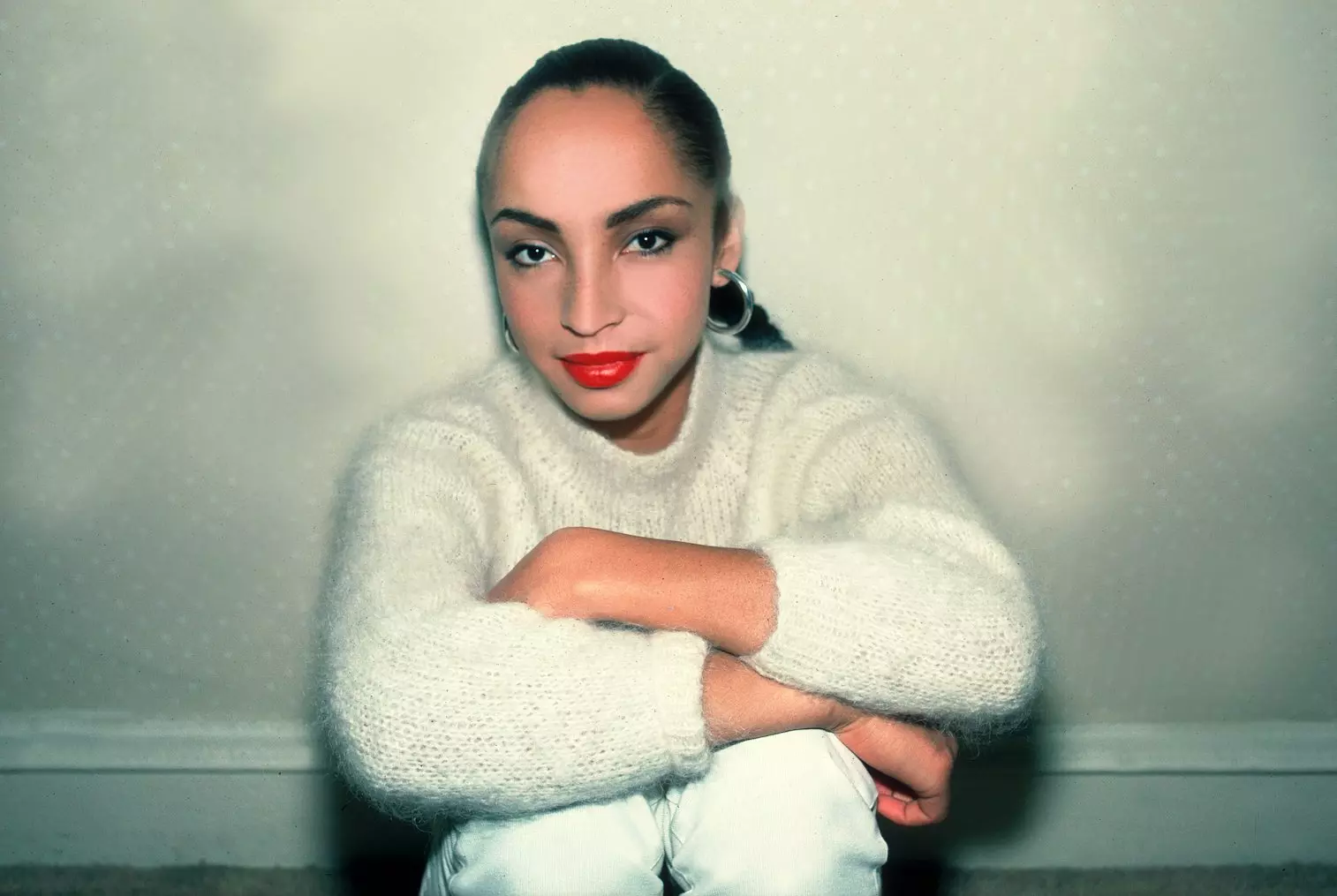
8 Ways Sade's 'Diamond Life' Album Redefined '80s Music & Influenced Culture

Katelyn Tarver's "Everyday Is A Winding Road"
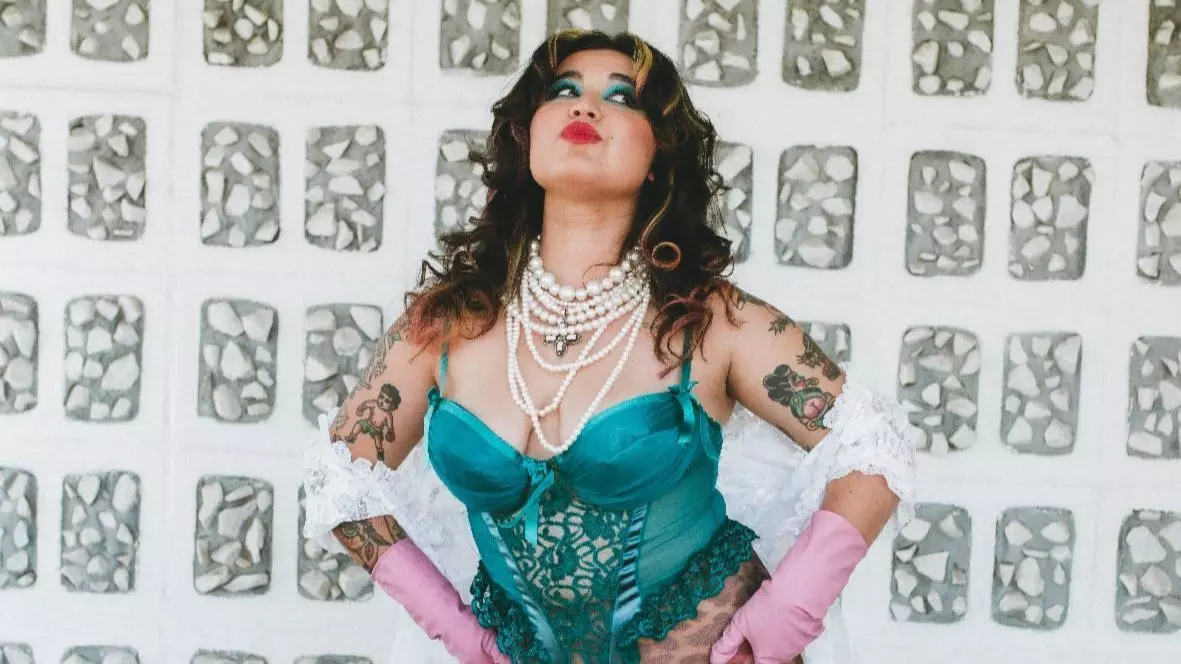
On New Album 'Big Ideas,' Remi Wolf Delivers Musical Poetry In Motion
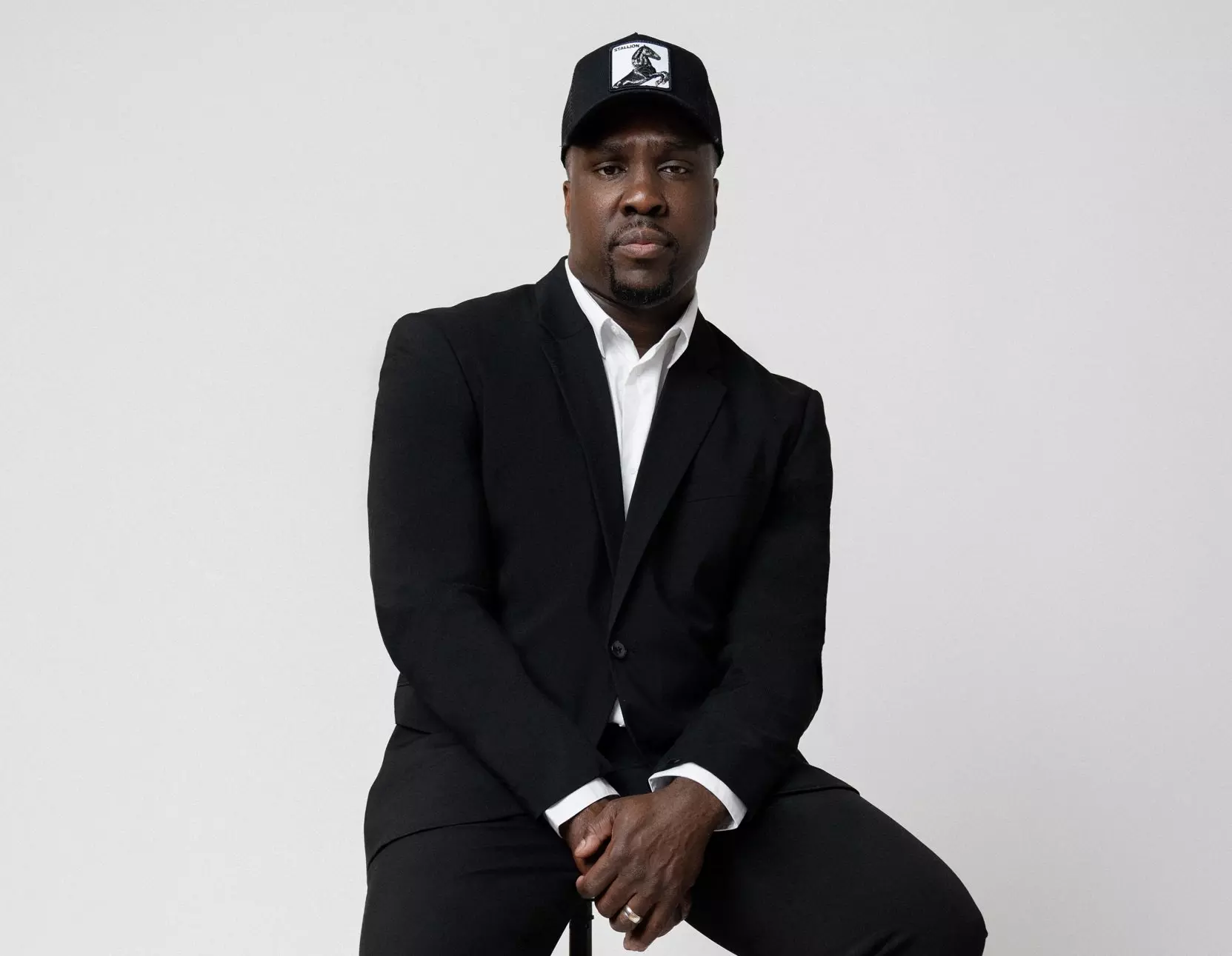
Meet Derrick Hodge, The Composer Orchestrating Hip-Hop's Symphony

Behind Ryan Tedder's Hits: Stories From The Studio With OneRepublic, Beyoncé, Taylor Swift & More
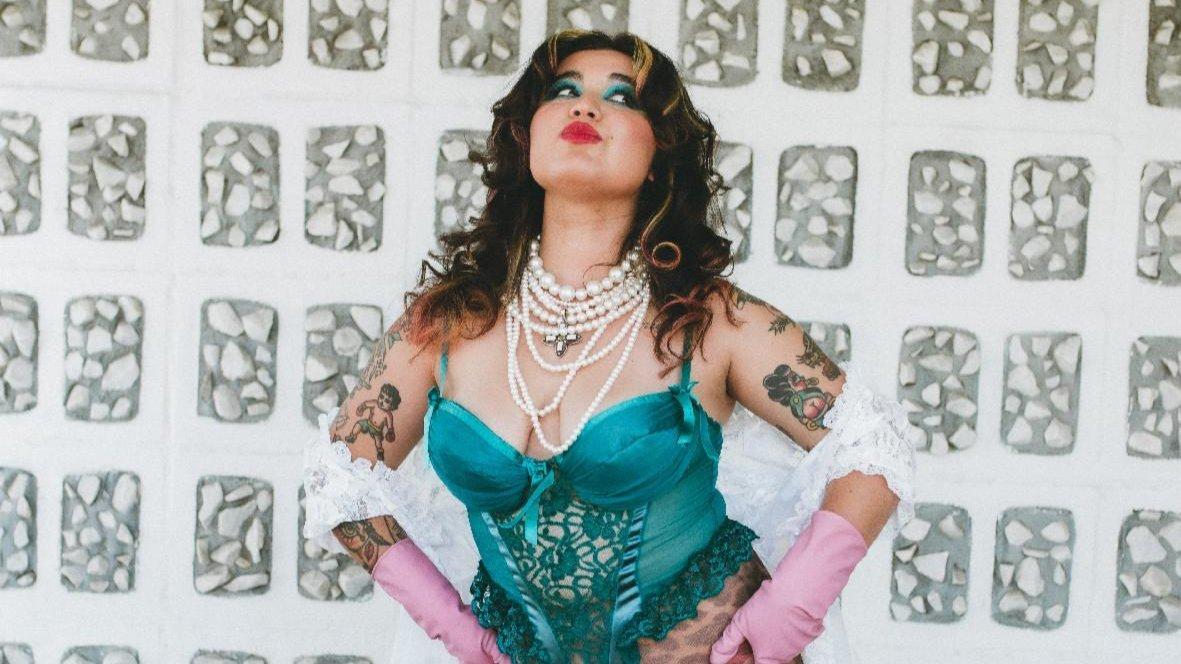
Photo: Ragan Henderson
interview
On New Album 'Big Ideas,' Remi Wolf Delivers Musical Poetry In Motion
Alt-pop favorite Remi Wolf took inventory of her psychological state while on "back-to-back-to-back" tours, and the result is a winning second album: 'Big Ideas.'
How can you write a song, when you have nothing to sing about? One trusty well to return to is life on the road; the musical canon is filled with odes to whizzing highway dividers, beds in strange places and, on occasion, a deteriorating home life.
The buzzy and prolific singer/songwriter Remi Wolf just folded these experiences into Big Ideas — her second full-length album, and one born of perpetual travel, transit and transition. (And, it should be said: her Carmen Sandiego traversals led her to NYC’s 2024 GRAMMY U Conference.)
"Well into my 20s, it was like a second puberty, because essentially, I was reborn as this touring musician," the thoughtful and loquacious indie-popper tells GRAMMY.com, over Zoom from her rehearsal space. (Even then, she's in motion, ducking from room to room to evade clamorous comings and goings.)
She evokes her breakout 2021 debut album: "I'd never toured like that before. My whole entire life felt so new after Juno was released."
This led to a white-hot writing streak. Big Ideas' highlights, like advance singles "Toro" and "Alone in Miami," directly address change and upheaval. Goes the former: "Dancing around and spilling wine/ You look good in my hotel robe." Goes the latter: "Met up with Maine, bought cocaine/ Clothes in the lobby waiting for me."
"There's no frills in that s—," Wolf says. "They're quite literally about real life." Read on for a full interview with Wolf about Big Ideas — a locus of that life, in all its nuances and dimensions.
This interview has been edited for clarity.
I love how funky and rhythmic 'Big Ideas' is. Which rhythms from the musical canon got you going? Are you a Purdie head? A Dan head?
Oh, all of the above. I love a Purdie shuffle. The Purdie shuffle is a pretty legendary groove. I'm a huge fan of Steely Dan. I went to music college; I feel like as a music school student, you kind of have to love Steely Dan. Well, some of the kids choose to hate them, but I chose to love them.
But yeah, I love a funky groove, a funky beat. I also like simple s—, but we love syncopation in this household.
What'd you grow up listening to on that front?
Honestly, not much. I feel like as a young kid, I would just listen to what my parents were listening to, and my dad listened to a lot of '80s classic rock, and my mom really liked Prince.
And then, also, my first album I ever owned was Speak Now by Lindsay Lohan, which is a completely different direction, and I was about eight when I got that album.
I didn't know she made music.
She had a music career. It was brief, but it was mighty, truly. She had all the best songwriters in the industry at the time working on this album. So honestly, even though it wasn't the pinnacle of musicianship, the writing was really good. Great songs.
I just flashed back to Hilary Duff jewel cases in grade school.
Oh, yeah, that's another classic, but I was a little bit more alternative than that. Lindsay Lohan was kind of on more of a pop-punk, like emo front-facing type of songwriting and energy. A little bit more like Alanis Morissette vibes.
If I ever encounter a Lohan song in the wild, I'll remember your recommendation.
When I was a high schooler, that's kind of when I started really listening to a bunch of staff that wasn't playing in my house. And that's when I got into Stevie Wonder and the Beatles and Cake.
I ride for Cake. Great band.
I ride for Cake, too. Honestly, they're one of my favorite bands of all time. I don't know, I feel super similar to them sometimes. Their lyrics are so wacky and sad, kind of — and bizarre, but they're so funky, and the songs are just great, but they're weird.
Take the readers through the span of time between your first album, 'Juno,' up to this sophomore album. What seed was planted?
I released Juno at the end of 2021, and I guess the seed that was birthed after that was that I've essentially been on tour ever since.
This new album, Big Ideas, is kind of the product of: I would go out on tour and come home for a week at a time, because I was on back-to-back-to-back tours. I went on 10 tours in one year; I was only home for about six weeks of all of 2022. And then, going into 2023, I kept touring, and kept doing the same thing.
Watch: GRAMMY Museum Spotlight: Remi Wolf
This album is a collection of all these moments and memories, and getting really focused, short amounts of time with me getting home and kind of exploding songwriting-wise — then, going back on tour and building up s— to talk about, and then exploding once again.
There were about five concentrated week-and-a-half to two-week-long periods of writing that became this album.
Do you get a charge out of touring? I couldn't imagine doing it again.
Yeah. I think that there is an adrenaline that I like about it. I like traveling. I like seeing different cities, even if it's for a couple hours. I really like that.
I like the communal aspect of it. I like getting really close to people and having a routine, to be honest. It's the most routine time of my life. Other than that, when I'm home, I'm just all over the place and doing a bunch of s—, which also has its perks.
But I don't know, there's something about waking up and doing the same thing every day that kind of is nice for me. And it's cool to be able to just focus on one thing, getting to the next city and playing the show and making people happy.
What about your life disappearing temporarily? Leaving a partner, your houseplants…
No, that's really difficult. I luckily don't have a partner right now, but I think that tour is really capable of ruining a lot of relationships, unless you've got a really strong one where they understand the lifestyle and everything. But I've had many houseplants die. It's actually really sad.
Your life just kind of is on pause. It's like a time machine, or a time capsule. Especially living in L.A. where the weather's the same every single day, you come home, and it's exactly the same as when you left the city.
Once the emotional and conceptual pieces were on the floor, how did you assemble 'Big Ideas?'
There are so many iterations of what it could have been. Because like I said, I had five two-week long sections of writing a f— ton of songs. And I'm not kidding, I wrote full albums within those weeks. I would be hunkered.
I had one week in L.A. where it was five days, and we wrote 10 songs. And then I had another week in L.A. We wrote seven songs. And I had another week in New York, and we wrote nine songs. And then another week in New York, and we wrote 12 songs. And then another week finally back in L.A., and we wrote four songs that time.
But essentially, I was kind of just doing what felt right. Until I felt like we had an entire album that was cohesive but expansive in its palette, I kept writing. And then finally, at a certain point, I was like, OK, I feel like we have the record.
But there were moments where I was like, oh, I just wrote an album. I don't have to do anything else. And then a month would go by and I'd be like, I need to do more.
In terms of choosing the songs, I think I was drawn to the songs that felt the most real to me — that continued to feel the most exciting and real to me.
Define "real" in this context.
That is a very difficult question to answer, and I think it is such a gut thing. It's beyond language. I don't know how to describe that. I don't know. If I feel invested. There are certain songs that you write and you like them, but you don't have that same feeling of investment in them.
Does this really need to be heard? Does anybody need this?
Yeah. Or: Do I need this? Honestly, it's so inexplicable.
Do you ever try to work the songwriting muscle of making something specific, universal? Is that part of your calculus?
Typically, it's not, but there's one song that I tried to do it on very intentionally: "Soup."
[I had] the intention of making it a song that was built for an arena in terms of the sonics and the expansiveness of the drums and the four-on-the-floor. In my head, I was like, OK, I want this song to play, and then you see the arena with the people pumping their fists and feet.
I think I'd recently seen Coldplay at Wembley Stadium, and I was like, Holy s—, this is so wild. Their stuff is so arena, stadium-bound. I was inspired by essentially the four-on-the-floor feel — hearing the reverb in the rafters of an arena like that.
Going into writing that song, I was like, this is the song where it would make sense for me to be blunt and universal with my lyrics. And I think it was a cool experiment and honestly quite vulnerable for me, because I think sometimes I shy away from that type of lyric writing, whether it be out of just wanting to be a little bit more artsy.
Sometimes I think it's fear-based, in the sense of: I want to hide, I want to be able to be the only one to really know what I'm talking about sometimes. And I think with "Soup," I kind of just let it fly and let that universality shine through a little bit more.
You don't need to know what songs mean all the time. You mentioned the Beatles: John sang, "Yellow matter custard, dripping from a dead dog's eye."
Yeah. It's syllables, and imagery. This s— can be anything you want to be, and I always try to remember that.
What's coming up in your musical life?
I'm going on tour in the fall; today is our first day of rehearsals. We're starting to put together a big show. More travel, more motion. I never stop moving, essentially. Hopefully I'll be writing more soon.
Explore More Alternative & Indie Music
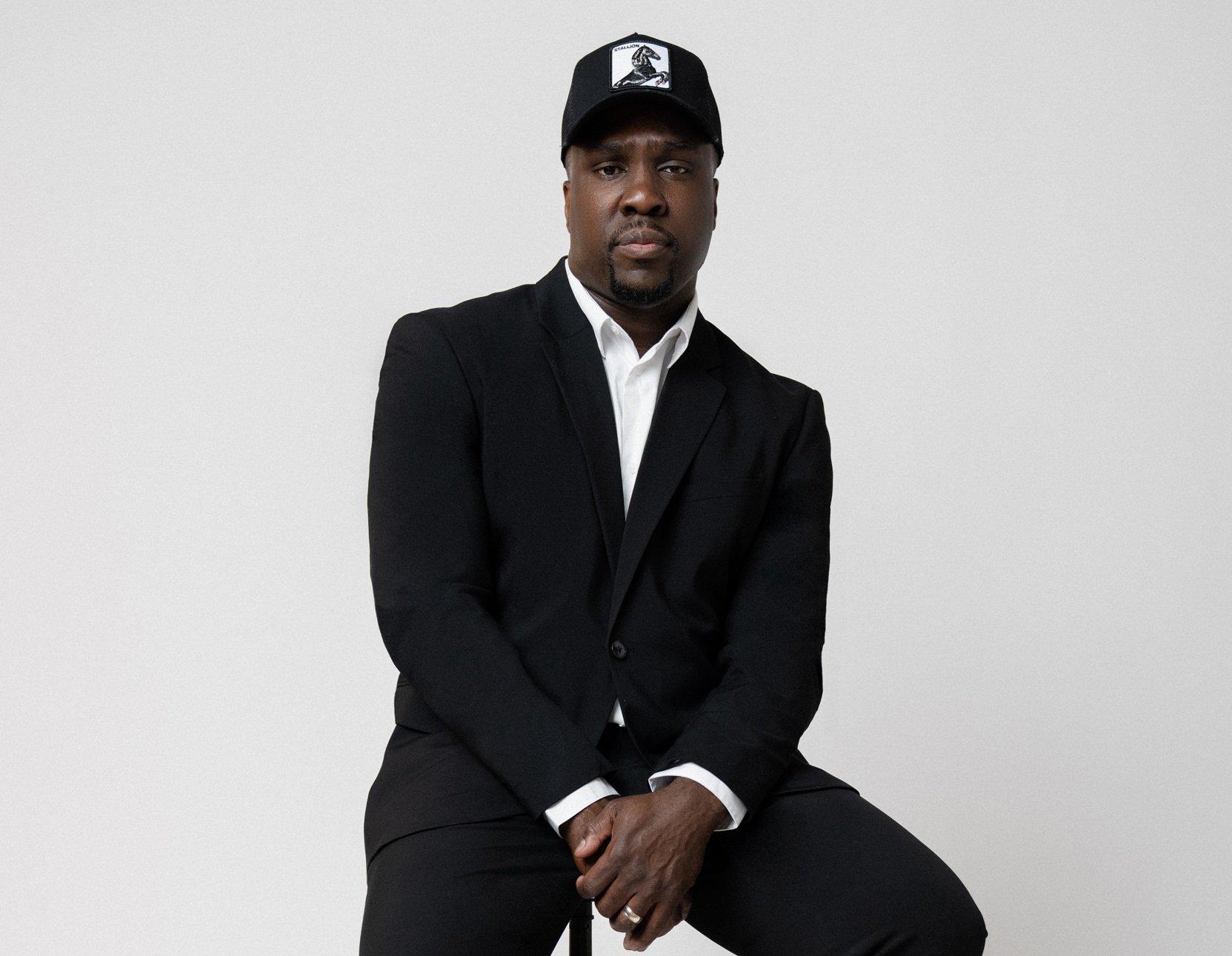
Photo: Oye Diran
interview
Meet Derrick Hodge, The Composer Orchestrating Hip-Hop's Symphony
From Nas' 'Illmatic' to modern hip-hop symphonies, Derrick Hodge seamlessly bridges the worlds of classical and hip-hop music, bringing orchestral elegance to iconic rap anthems.
Over the last 50 years, hip-hop culture has shown it can catalyze trends in fashion and music across numerous styles and genres, from streetwear to classical music. On June 30, Nas took his place at Red Rocks Amphitheater in a full tuxedo, blending the worlds of hip-hop and Black Tie once again, with the help of Derrick Hodge.
On this warm summer eve in Morrison, Colorado, Nas performed his opus, Illmatic, with Hodge conducting the Colorado Symphony Orchestra. The show marked a belated 30-year celebration of the album, originally released on April 19, 1994.
As Nas delivered his icy rhymes on classics like "N.Y. State of Mind," "Memory Lane (Sittin' in da Park)," and "Halftime," the orchestra held down the beat with a wave of Hodge's baton. The winds, strings, and percussion seamlessly transitioned from underscoring Nas's lyrics with sweeping harmonic layers to leading melodic orchestral flourishes and interludes. For the album's final track, "Ain't Hard to Tell," the orchestra expanded on Michael Jackson's "Human Nature," expertly sampled originally by producer Large Professor.
Derrick Hodge is a pivotal figure in modern music. His career spans writing and performing the famous bassline on Common's "Be," composing for Spike Lee's HBO documentary "When the Levees Broke: A Requiem in Four Acts," and his own solo career that includes his latest experimental jazz album, COLOR OF NOIZE. Hodge also made history by bringing hip-hop to the Kennedy Center with orchestra accompaniments for Illmatic to celebrate the album's 20th anniversary in 2014.
"That was the first time hip-hop was accepted in those walls," Hodge says sitting backstage at Red Rocks. It was also the first time Hodge composed orchestral accompaniments to a hip-hop album.
Since then, Hodge has composed symphonic works for other rappers including Jeezy and Common, and is set to deliver a symphonic rendition of Anderson .Paak's 2016 album, Malibu, at the Hollywood Bowl in September.
Hodge's passion for orchestral composition began when he was very young. He played upright bass by age seven and continued to practice classical composition in his spare moments while touring as a bassist with Terence Blanchard and Robert Glasper. On planes. In dressing rooms. In the van to and from the gig.
"It started as a dream. I didn't know how it was going to be realized. My only way to pursue that dream was just to do it without an opportunity in sight," Hodge says. "Who would've known that all that time people were watching? Friends were watching and word-of-mouth."
His dedication and word-of-mouth reputation eventually led Nas to entrust him with the orchestral arrangements for Illmatic. He asked Hodge and another arranger, Tim Davies, to write for the performance at the Kennedy Center.
"[Nas] didn't know much about me at all," Hodge says. "For him to trust how I was going to paint that story for an album that is very important to him and important to the culture, I have not taken that for granted."
Read more: How 'Illmatic' Defined East Coast Rap: Nas’ Landmark Debut Turns 30
Those parts Hodge wrote for the Kennedy Center are the same parts he conducted at Red Rocks. Over a decade later, he channels the same drive and hunger he had when he was practicing his compositions between gigs. "I hope that I never let go of that. I feel like these opportunities keep coming because I'm approaching each one with that conviction. Like this could be my last."
Before this latest performance, GRAMMY.com spoke with Hodge about bridging the worlds of classical and hip-hop, influencing the next generation of classical musicians, and how his experience as a bassist helps him lead an orchestra.
Throughout history, orchestral music has been celebrated by the highest echelons of society, whereas hip-hop has often been shunned by that echelon. What is it like for you to bring those two worlds together?
I love it. I've embraced the opportunity since day one. I was a young man showing up with Timberlands on and cornrows in my hair, and I knew the tendency to act and move in a certain perception was there. I knew then I have to represent hope in everything I do. I choose to this day to walk with a certain pair of blinders on because I feel like it's necessary. Because of that I never worry about how the classical world perceives me.
Oftentimes I'll stand before them and I know there may be questions but the love I show them, what I demand of them, and how I show appreciation when they take the music seriously…almost every situation has led to lifelong friendships.
I believe that's been part of my purpose. It's not even been to change minds or change perceptions. In serving the moment, even when people have preconceptions, they're in front of me playing music I wrote. How do I serve them best? How do I bring out the best in them just like I'm trying to bring out the best in the storyline of a hip-hop artist that may not relate to their story at all? The answer is just to be selfless. That's eliminated the distraction of trying to convince minds.
With that unifying principle, would you consider conducting the orchestra the same thing as playing bass with Robert Glasper?
The way I try to be selfless and serve the moment, it's no different. Maybe the skillset that's required. For example, conducting or working within a framework of composed music requires a certain way of making sure everybody's on the same page so we can get through these things on time and keep going. But I serve that moment no differently than when myself and Robert Glasper, Chris Dave, Casey Benjamin RIP, are creating a song in the moment.
I actually don't even think about how one thing is affecting the other. I will say the beauty of the bass and the bassists that have influenced me — from Ron Carter to the great Marcus Miller, Victor Wooten — is the way they can stand out while never abandoning the emotion of the moment. Remembering what is perceived as the role of the bass and how it glues things in a unique way. Harmonically and rhythmically. Being aware of the responsibility of being aware of everything.
I think that's one thing that's carried over to orchestrating and thinking about balances and how to convey emotion. I think some things are innate with bassists. We're always navigating through harmony and having a conversation through a lens of placement with drums. Placement with the diction if they're singers or rappers. There are a lot of decisions bass players are making in the moment that we don't even think about. It's just secondhand. But it's how are we serving what's necessary to make the conversation unified. I think that's one thing that's served me well in composition.
What's one song you're particularly excited to dive into for the Anderson .Paak arrangements?
So I'm intentionally not thinking in that way because we decided to treat it like a movie. Start to finish no matter what. With that in mind, I'm trying to approach it as if the whole thing is an arcing story because I didn't realize the succession of how he placed that record was really important to him.
**Hip-hop is often a very minimalist genre while an orchestra is frequently the opposite with dozens of instruments. How do you maintain that minimalist feel when writing orchestra parts for hip-hop albums like Illmatic?**
I'm so glad you asked that because that was the biggest overarching thing I had to deal with on the first one. With Nas. Because Illmatic, people love that as it is. Every little thing. It wasn't just the production. Nas's diction in between it, how he wrote it, how he told the story, and the pace he spoke through it. That's what made it. So the biggest thing is how do I honor that but also try to tell the story that honors the narrative of symphonic works? [The orchestra is] fully involved. How do I do things in a way where they are engaged without forcing them?
Illmatic was a part of my soundtrack. So I started with the song that meant the most to me at that time: "The World is Yours." That was the first piece I finished, and I emailed Pete Rock and asked "How is this feeling to you?" If the spirit of the song is speaking to him then I feel like this is something I can give to the people no matter how I feel about it. And he gave the thumbs up.
So instead of overly trying to prove a point within the flow of the lyrics, how do we pick those moments when the orchestra is exposed? Let them be fully exposed. Let them tell a story leading into that. Make what they do best marry well into what Nas and the spirit of hip-hop and hip-hop sampling do best. And then let there be a dance in between.
That first [Illmatic] show was a great experiment for me. I try to carve out moments whenever I can. Let me figure out what's a story that can combine this moment with this moment. That's become the beauty. Especially within the rap genre. To let something new that they're not familiar with lead into this story.
*Derrick Hodge conducts the Colorado Symphony Orchestra at Red Rocks* | Amanda Tipton
The orchestra is just as excited to play it as Nas is to have them behind him.
And that reflects my story. I try to dedicate more time to thinking about that, and that normally ends up reciprocated back in the way they're phrasing. In the way they're honoring the bones. In the way they're honoring the breaths that I wrote in for them. They start to honor that in a way because they know we're coming to try and have a conversation with these orchestras. That's one thing I try to make sure no matter what. It's a conversation and that goes back to the moment as well.
I've seen other composers put an orchestral touch on hip-hop in recent years. For example, Miguel Atwood-Ferguson wrote orchestral parts to celebrate Biggie's 50th birthday. Would you say integrating an orchestra into hip-hop is becoming more popular?
It has become popular, especially in terms of catching the eyes of a lot of the different symphonies that might not have opened up their doors to that as frequently in the past. These opportunities — I appreciate the love shown where my name is mentioned in terms of the inception of things. But I approach it with a lot of gratitude because others were doing it and were willing to honor the music the same. There are many that wish they had that opportunity so I try to represent them.
With these more modern applications of orchestral music, I feel like there will be an explosion of talent within the classical realm in the next few years. Kids will think it's cool to play classical again.
The possibility of that just brings joy to me. Not just because it's a spark, but hopefully the feeling in the music they relate to. Hopefully there is something in it, aside from seeing it done, that feels that it relates to their story. I have confidence if I'm true to myself, hopefully, each time in the music it's going to feel like it's something relevant to the people. The more I can help foster platforms where people are free to be themselves, and where they can honor the music—I hope that mentality becomes infectious.
More Rap News

5 Rising L.A. Rappers To Know: Jayson Cash, 310babii & More
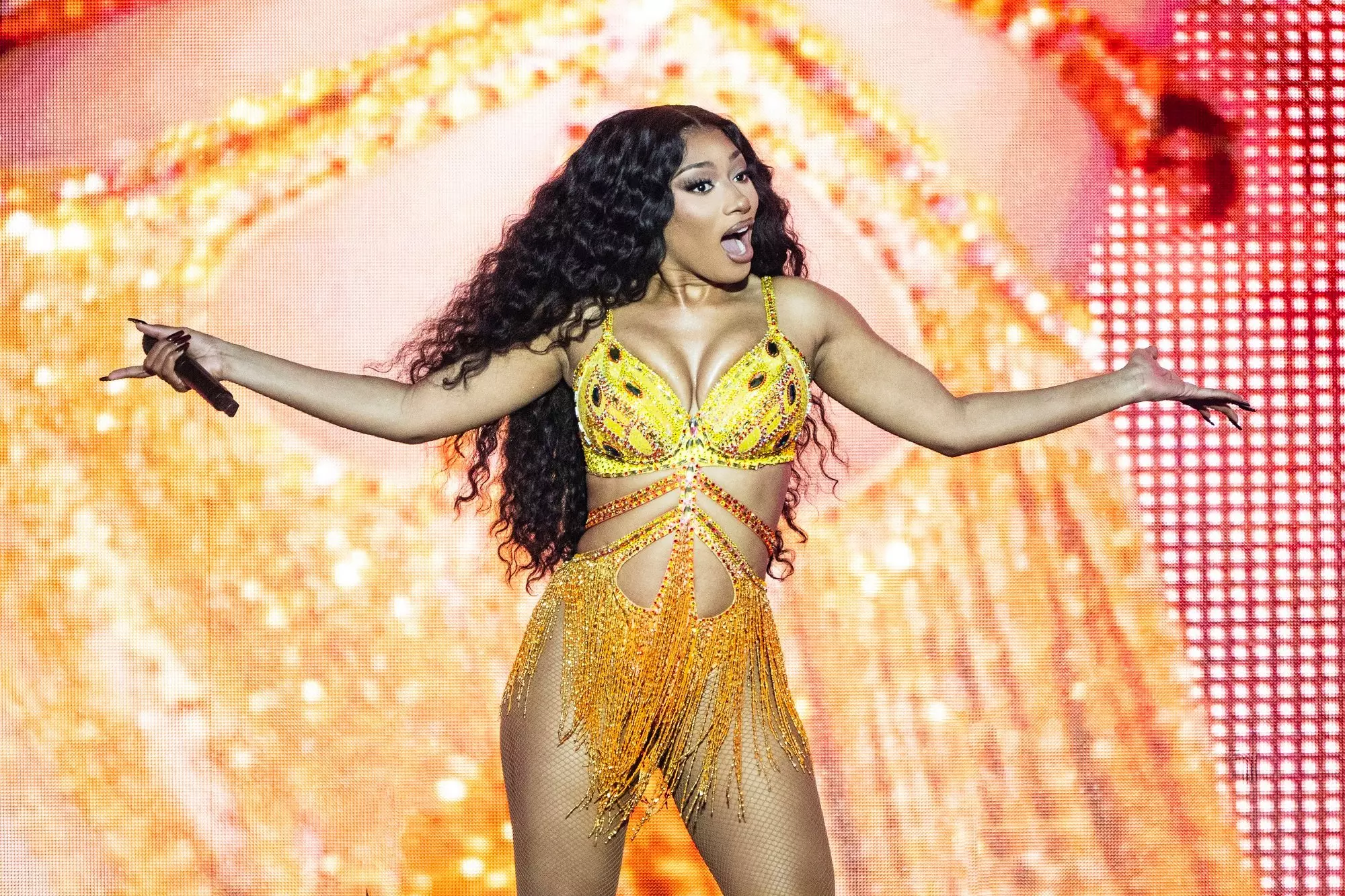
6 Takeaways From Megan Thee Stallion's 'Megan': Snakes, Shots & Self-Assurance

Celebrate 40 Years Of Def Jam With 15 Albums That Show Its Influence & Legacy
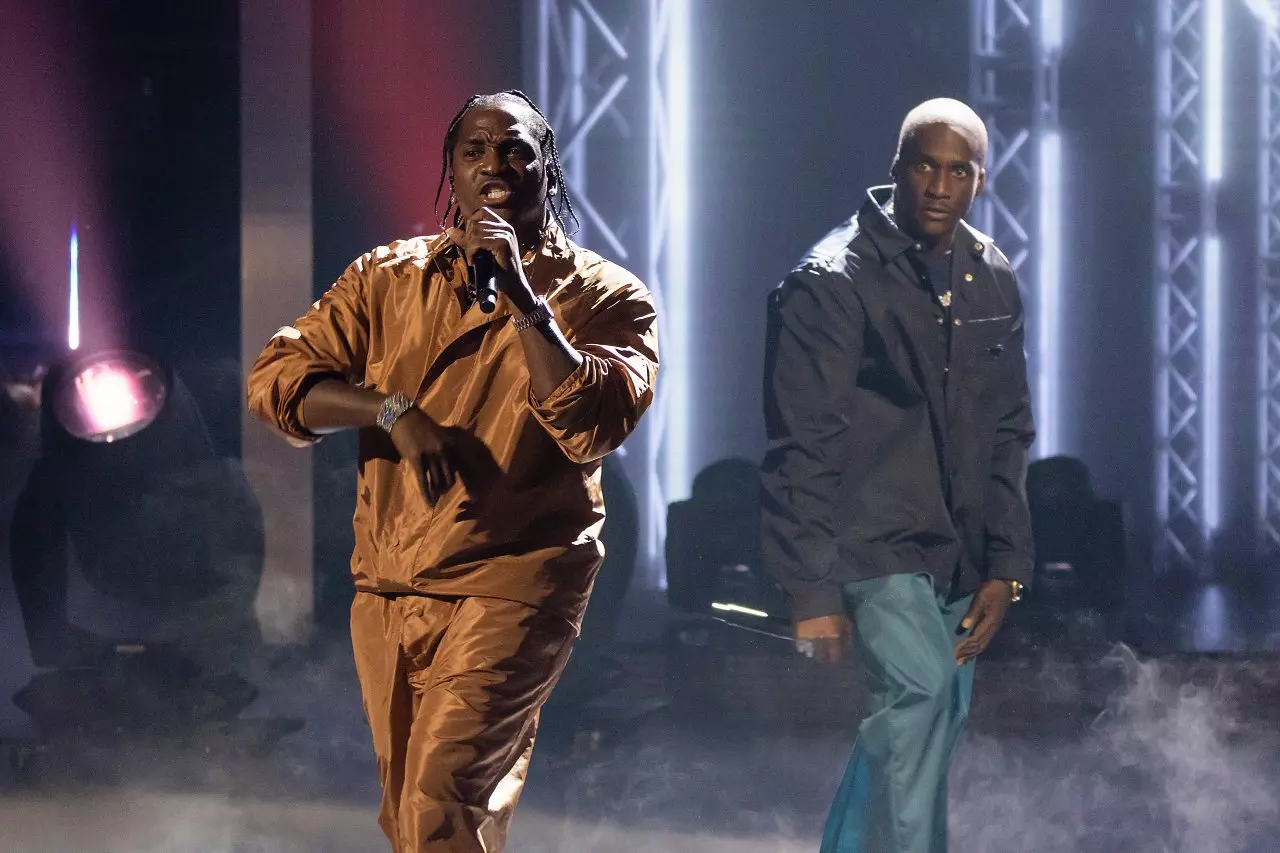
Everything We Know About Clipse's First Album In 15 Years: Pusha T And Malice Rise Again
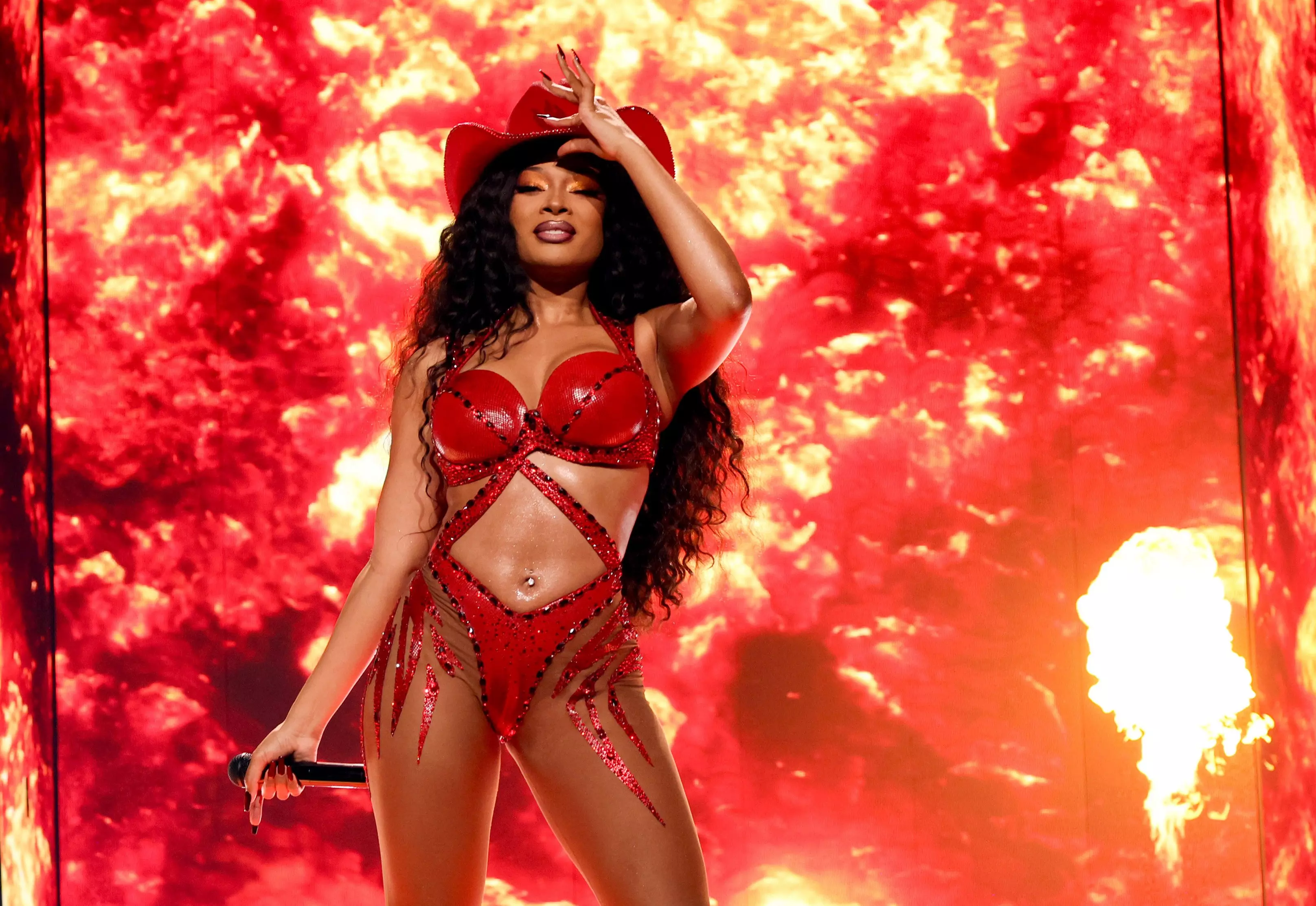
5 Iconic Moments From Megan Thee Stallion's Houston Hometown Shows

Photo: Jeremy Cowart
interview
Behind Ryan Tedder's Hits: Stories From The Studio With OneRepublic, Beyoncé, Taylor Swift & More
As OneRepublic releases their latest album, the group's frontman and pop maverick gives an inside look into some of the biggest songs he's written — from how Beyoncé operates to Tom Cruise's prediction for their 'Top Gun' smash.
Three months after OneRepublic began promoting their sixth album, Artificial Paradise, in February 2022, the band unexpectedly had their biggest release in nearly a decade. The pop-rock band's carefree jam, "I Ain't Worried," soundtracked Top Gun: Maverick's most memeable scene and quickly became a global smash — ultimately delaying album plans in favor of promoting their latest hit.
Two years later, "I Ain't Worried" is one of 16 tracks on Artificial Paradise, which arrived July 12. It's a seamless blend of songs that will resonate with longtime and newer fans alike. From the layered production of "Hurt," to the feel-good vibes of "Serotonin," to the evocative lyrics of "Last Holiday," Artificial Paradise shows that OneRepublic's sound is as dialed-in as it is ever-evolving.
The album also marks the end of an era for OneRepublic, as it's the last in their contract with Interscope Records. But for the group's singer, Ryan Tedder, that means the future is even more exciting than it's been in their entire 15-year career.
"I've never been more motivated to write the best material of my life than this very moment," he asserts. "I'm taking it as a challenge. We've had a lot of fun, and a lot of uplifting records for the last seven or eight years, but I also want to tap back into some deeper material with the band."
As he's been prepping Artificial Paradise with his OneRepublic cohorts, Tedder has also been as busy as he's ever been working with other artists. His career as a songwriter/producer took off almost simultaneously with OneRepublic's 2007 breakthrough, "Apologize" (his first major behind-the-board hit was Leona Lewis' "Bleeding Love"); to this day he's one of the go-to guys for pop's biggest names, from BLACKPINK to Tate McRae.
Tedder sat down with GRAMMY.com to share some of his most prominent memories of OneRepublic's biggest songs, as well as some of the hits he's written with Beyoncé, Adele, Taylor Swift and more.
OneRepublic — "Apologize," 'Dreaming Out Loud' (2007)
I was producing and writing other songs for different artists on Epic and Atlantic — I was just cutting my teeth as a songwriter in L.A. This is like 2004. I was at my lowest mentally and financially. I was completely broke. Creditors chasing me, literally dodging the taxman and getting my car repoed, everything.
I had that song in my back pocket for four years. A buddy of mine just reminded me last month, a songwriter from Nashville — Ashley Gorley, actually. We had a session last month, me, him and Amy Allen, and he brought it up. He was like, "Is it true, the story about 'Apologize'? You were completely broke living in L.A. and Epic Records offered you like 100 grand or something just for the right to record the song on one of their artists?"
And that is true. It was, like, 20 [grand], then 50, then 100. And I was salivating. I was, like, I need this money so bad. And I give so many songs to other people, but with that song, I drew a line in the sand and said, "No one will sing this song but me. I will die with this song."
It was my story, and I just didn't want anyone else to sing it. It was really that simple. It was a song about my past relationships, it was deeply personal. And it was also the song that — I spent two years trying to figure out what my sound was gonna be. I was a solo artist… and I wasn't landing on anything compelling. Then I landed on "Apologize" and a couple of other songs, and I was like, These songs make me think of a band, not solo artist material. So it was the song that led me to the sound of OneRepublic, and it also led me to the idea that I should start a band and not be a solo artist.
We do it every night. I'll never not do it. I've never gotten sick of it once. Every night that we do it, whether I'm in Houston or Hong Kong, I look out at the crowd and look at the band, and I'm like, Wow. This is the song that got us here.
Beyoncé — "Halo," 'I Am…Sacha Fierce' (2008)
We were halfway through promoting Dreaming Out Loud, our first album. I played basketball every day on tour, and I snapped my Achilles. The tour got canceled. The doctor told me not to even write. And I had this one sliver of an afternoon where my wife had to run an errand. And because I'm sadistic and crazy, I texted [songwriter] Evan Bogart, "I got a three-hour window, race over here. Beyoncé called me and asked me to write her a song. I want to do it with you." He had just come off his huge Rihanna No. 1, and we had an Ashley Tisdale single together.
When you write enough songs, not every day do the clouds part and God looks down on you and goes, "Here." But that's what happened on that day. I turn on the keyboard, the first sound that I play is the opening sound of the song. Sounds like angels singing. And we wrote the song pretty quick, as I recall.
I didn't get a response [from Beyoncé after sending "Halo" over], which I've now learned is very, very typical of her. I did Miley Cyrus and Beyoncé "II MOST WANTED" [from COWBOY CARTER] — I didn't know that was coming out 'til five days before it came out. And when I did "XO" [from 2013's Beyoncé], I found out that "XO" was coming out 12 hours before it came out. That's how she operates.
OneRepublic — "Good Life," 'Waking Up' (2009)
["Good Life"] was kind of a Hail Mary. We already knew that "All the Right Moves" would be the first single [from Waking Up]. We knew that "Secrets" was the second single. And in the 11th hour, our engineer at the time — who I ended up signing as a songwriter, Noel Zancanella — had this drum loop that he had made, and he played it for Brent [Kutzle] in our band. Brent said, "You gotta hear this drum loop that Noel made. It's incredible."
He played it for me the next morning, and I was like, "Yo throw some chords to this. I'm writing to this today." They threw some chords down, and the first thing out of my mouth was, [sings] "Oh, this has gotta be the good life."
It's the perfect example of, oftentimes, the chord I've tried to strike with this band with some of our bigger records, [which] is happy sad. Where you feel nostalgic and kind of melancholic, but at the same time, euphoric. That's what those chords and that melody did for me.
I was like, "Hey guys, would it be weird if I made the hook a whistle?" And everyone was like, "No! Do not whistle!" They're like, "Name the last hit song that had a whistle." And the only one I could think of was, like, Scorpion from like, 1988. [Laughs.] So I thought, To hell with it, man, it's been long enough, who cares? Let's try it. And the whistle kind of made the record. It became such a signature thing.
Adele — "Rumour Has It," '21' (2011)
"Rumour Has It" was the first song I did in probably a four year period, with any artist, that wasn't a ballad. All any artist ever wanted me to write with them or for them, was ballads, because of "Halo," and "Apologize" and "Bleeding Love."
I begged [Adele] to do a [song with] tempo, because we did "Turning Tables," another ballad. She was in a feisty mood [that day], so I was like, "Okay, we're doing a tempo today!"
Rick Rubin was originally producing the whole album. I was determined to produce Adele, not just write — because I wanted a shot to show her that I could, and to show myself. I stayed later after she left, and I remember thinking, What can I do in this record in this song that could be so difficult to reproduce that it might land me the gig?
So I intentionally muted the click track, changed the tempo, and [created that] whole piano bridge. I was making it up as I went. When she got in that morning. I said, "I have a crazy idea for a bridge. It's a movie." She listens and she says, "This is really different, I like this! How do we write to this?"
I mean, it was very difficult. [But] we finished the song. She recorded the entire song that day. She recorded the whole song in one take. I've never seen anyone do that in my life — before or since.
Then I didn't hear from her for six months. Because I handed over the files, and Rick Rubin's doing it, so I don't need to check on it. I randomly check on the status of the song — and at this point, if you're a songwriter or producer, you're assuming that they're not keeping the songs. Her manager emails my manager, "Hey, good news — she's keeping both songs they did, and she wants Ryan to finish 'Rumour Has It' production and mix it."
When I finally asked her, months later — probably at the GRAMMYs — I said, "Why didn't [Rick] do it?" She said, "Oh he did. It's that damn bridge! Nobody could figure out what the hell you were doing…It was so problematic that we just gave up on it."
OneRepublic — "Counting Stars," 'Native' (2013)
I was in a Beyoncé camp in the Hamptons writing for the self-titled album. [There were] a bunch of people in the house — me, Greg Kurstin, Sia — it was a fun group of people. I had four days there, and every morning I'd get up an hour and a half before I had to leave, make a coffee, and start prepping for the day. On the third day, I got up, I'm in the basement of this house at like 7 in the morning, and I'm coming up with ideas. I stumble across that chord progression, the guitar and the melody. It was instant shivers up my spine.
"Lately I've been losing sleep, dreaming about the things that we could be" is the only line that I had. [My] first thought was, I should play this for Beyoncé, and then I'm listening to it and going, This is not Beyoncé, not even remotely. It'd be a waste. So I tabled it, and I texted the guys in my band, "Hey, I think I have a potentially really big record. I'm going to finish it when I get back to Denver."
I got back the next week, started recording it, did four or five versions of the chorus, bouncing all the versions off my wife, and then eventually landed it. And when I played it for the band, they were like, "This is our favorite song."
Taylor Swift — "Welcome to New York," '1989' (2014)
It was my second session with Taylor. The first one was [1989's] "I Know Places," and she sent me a voice memo. I was looking for a house in Venice [California], because we were spending so much time in L.A. So that whole memory is attached to me migrating back to Los Angeles.
But I knew what she was talking about, because I lived in New York, and I remember the feeling — endless possibilities, all the different people and races and sexes and loves. That was her New York chapter. She was so excited to be there. If you never lived there, and especially if you get there and you've got a little money in the pocket, it is so exhilarating.
It was me just kind of witnessing her brilliant, fast-paced, lyrical wizardry. [Co-producer] Max [Martin] and I had a conversation nine months later at the GRAMMYs, when we had literally just won for 1989. He kind of laughed, he pointed to all the other producers on the album, and he's like, "If she had, like, three more hours in the day, she would just figure out what we do and she would do it. And she wouldn't need any of us."
And I still think that's true. Some people are just forces of nature in and among themselves, and she's one of them. She just blew me away. She's the most talented top liner I've ever been in a room with, bar none. If you're talking lyric and melody, I've never been in a room with anyone faster, more adept, knows more what they want to say, focused, efficient, and just talented.
Jonas Brothers — "Sucker," 'Happiness Begins' (2019)
I had gone through a pretty dry spell mentally, emotionally. I had just burned it at both ends and tapped out, call it end of 2016. So, really, all of 2017 for me was a blur and a wash. I did a bunch of sessions in the first three months of the year, and then I just couldn't get a song out. I kept having, song after song, artists telling me it's the first single, [then] the song was not even on the album. I had never experienced that in my career.
I went six to nine months without finishing a song, which for me is unheard of. Andrew Watt kind of roped me back into working with him. We did "Easier" for 5 Seconds of Summer, and we did some Sam Smith and some Miley Cyrus, and right in that same window, I did this song "Sucker." Two [or] three months later, Wendy Goldstein from Republic [Records] heard the record, I had sent it to her. She'd said, very quietly, "We're relaunching the Jonas Brothers. They want you to be involved in a major way. Do you have anything?"
She calls me, she goes, "Ryan, do not play this for anybody else. This is their comeback single. It's a No. 1 record. Watch what we're gonna do." And she delivered.
OneRepublic — "I Ain't Worried," 'Top Gun: Maverick' Soundtrack (2022)
My memory is, being in lockdown in COVID, and just being like, Who knows when this is going to end, working out of my Airstream at my house. I had done a lot of songs for movies over the years, and [for] that particular [song] Randy Spendlove, who runs [music at] Paramount, called me.
I end up Zooming with Tom Cruise [and Top Gun: Maverick director] Jerry Bruckheimer — everybody's in lockdown during post-production. The overarching memory was, Holy cow, I'm doing the scene, I'm doing the song for Top Gun. I can't believe this is happening. But the only way I knew how to approach it, rather than to, like, overreact and s— the bed, was, It's just another day.
I do prescription songs for movies, TV, film all the time. I love a brief. It's so antithetical to most writers. I'm either uncontrollably lazy or the most productive person you've ever met. And the dividing line between the two is, if I'm chasing some directive, some motivation, some endpoint, then I can be wildly productive.
I just thought, I'm going to do the absolute best thing I can do for this scene and serve the film. OneRepublic being the performing artist was not on the menu in my mind. I just told them, "I think you need a cool indie band sounding, like, breakbeat." I used adjectives to describe what I heard when I saw the scene, and Tom got really ramped and excited.
You could argue [it's the biggest song] since the band started. The thing about it is, it's kind of become one of those every summer [hits]. And when it blew up, that's what Tom said. He said, "Mark my words, dude. You're gonna have a hit with this every summer for, like, the next 20 years or more."
And that's what happened. The moment Memorial Day happened, "I Ain't Worried" got defrosted and marched itself back into the top 100.
Tate McRae — "Greedy," 'THINK LATER' (2023)
We had "10:35" [with Tiësto] the previous year that had been, like, a No. 1 in the UK and across Europe and Australia. So we were coming off the back of that, and the one thing she was clear about was, "That is not the direction of what I want to do."
If my memory serves me correct, "greedy" was the next to last session we had. Everything we had done up to that point was kind of dark, midtempo, emotional. So "greedy" was the weirdo outlier. I kept pushing her to do a dance record. I was like, "Tate, there's a lot of people that have great voices, and there's a lot of people who can write, but none of those people are professional dancers like you are. Your secret weapon is the thing you're not using. In this game and this career, you've got to use every asset that you have and exploit it."
There was a lot of cajoling. On that day, we did it, and I thought it was badass, and loved it. And she was like, "Ugh, what do we just do? What is this?"
So then it was just, like, months, months and months of me constantly bringing that song back up, and playing it for her, and annoying the s— out of her. And she came around on it.
She has very specific taste. So much of the music with Tate, it really is her steering. I'll do what I think is like a finished version of a song, and then she will push everyone for weeks, if not months, to extract every ounce of everything out of them, to push the song harder, further, edgier — 19 versions of a song, until finally she goes, "Okay, this is the one." She's a perfectionist.
OneRepublic — "Last Holiday," 'Artificial Paradise' (2024)
I love [our latest single] "Hurt," but my favorite song on the album is called "Last Holiday." I probably started the beginning of that lyric, I'm not joking, seven, eight years ago. But I didn't finish it 'til this past year.
The verses are little maxims and words of advice that I've been given throughout the years. It's almost cynical in a way, the song. When I wrote the chorus, I was definitely in kind of a down place. So the opening line is, "So I don't believe in the stars anymore/ They never gave me what I wished for." And it's, obviously, a very not-so-slight reference to "Counting Stars." But it's also hopeful — "We've got some problems, okay, but this isn't our last holiday."
It's very simple sentiments. Press pause. Take some moments. Find God before it all ends. All these things with this big, soaring chorus. Musically and emotionally and sonically, that song — and "Hurt," for sure — but "Last Holiday" is extremely us-sounding.
The biggest enemy that we've had over the course of 18 years, I'll be the first to volunteer, is, this ever-evolving, undulating sound. No one's gonna accuse me of making these super complex concept albums, because that's just not how my brain's wired. I grew up listening to the radio. I didn't grow up hanging out in the Bowery in CBGBs listening to Nick Cave. So for us, the downside to that, and for me doing all these songs for all these other people, is the constant push and pull of "What is their sound? What genre is it?"
I couldn't put a pin in exactly what the sound is, but what I would say is, if you look at the last 18 years, a song like "Last Holiday" really encompasses, sonically, what this band is about. It's very moving, and emotional, and dynamic. It takes me to a place — that's the best way for me to put it. And hopefully the listener finds the same.
Latest News & Exclusive Videos

8 Ways Sade's 'Diamond Life' Album Redefined '80s Music & Influenced Culture

Katelyn Tarver's "Everyday Is A Winding Road"

On New Album 'Big Ideas,' Remi Wolf Delivers Musical Poetry In Motion

Meet Derrick Hodge, The Composer Orchestrating Hip-Hop's Symphony

Behind Ryan Tedder's Hits: Stories From The Studio With OneRepublic, Beyoncé, Taylor Swift & More


